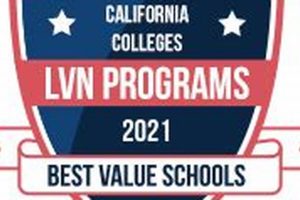Top-tier theological institutions offer rigorous academic programs culminating in advanced degrees such as Master of Divinity (MDiv), Master of Theological Studies (MTS), and Doctor of Theology (ThD) or Doctor of Philosophy (PhD) in religious studies. These programs typically encompass biblical studies, theology, church history, pastoral care, and ethics, preparing individuals for diverse ministerial roles or academic careers. For example, a curriculum might include coursework in Hebrew and Greek, systematic theology, homiletics, and comparative religion.
Graduates of highly-ranked seminaries and divinity schools are well-equipped to serve as religious leaders, chaplains, educators, scholars, and non-profit administrators. A strong theological education provides a foundation for critical thinking, ethical decision-making, and effective communication, essential skills in various professional contexts. Historically, these institutions have played a vital role in shaping religious thought and practice, contributing significantly to intellectual and social discourse.
This article will explore various factors to consider when evaluating theological institutions, including faculty expertise, program offerings, denominational affiliation, financial aid opportunities, and career services. It will also examine current trends in theological education and the evolving landscape of religious leadership.
Tips for Selecting a Top-Tier Theological Institution
Choosing the right seminary or divinity school requires careful consideration of individual academic and professional goals, as well as institutional values and resources. The following tips offer guidance for navigating this important decision.
Tip 1: Clarify Vocation and Ministry Goals: Discerning a specific calling within ministry (e.g., pastoral leadership, chaplaincy, academic scholarship) is crucial. Different programs emphasize distinct skill sets, and aligning institutional focus with personal aspirations is essential.
Tip 2: Research Faculty Expertise: Investigate faculty publications, research interests, and teaching experience. Strong faculty scholarship and mentorship can significantly enrich the learning experience.
Tip 3: Evaluate Program Curricula and Specializations: Thoroughly review program requirements, elective options, and areas of specialization within theological disciplines. Some institutions excel in specific areas like biblical languages, historical theology, or practical ministry.
Tip 4: Consider Denominational Affiliation and Theological Orientation: While some institutions are non-denominational or interdenominational, others have specific denominational ties. Understanding the theological perspectives and traditions of a school is vital for ensuring alignment with personal beliefs.
Tip 5: Assess Accreditation and Reputation: Accreditation ensures quality standards and facilitates transfer of credits. Research institutional rankings and reputation within the academic community and relevant professional fields.
Tip 6: Explore Financial Aid Options and Affordability: Investigate scholarship opportunities, grants, and loan programs. Factor the cost of tuition and living expenses into the decision-making process.
Tip 7: Visit Campuses and Engage with Current Students: If possible, visit prospective schools to experience the campus environment and interact with current students. This provides valuable insights into student life and the overall learning atmosphere.
By carefully considering these factors, prospective students can make informed decisions that align with their individual needs and aspirations, setting the stage for a fulfilling and impactful career in ministry or theological scholarship.
These tips provide a starting point for researching and selecting a suitable theological institution. The concluding section will offer further resources and guidance for navigating the application process.
1. Academic Rigor
Academic rigor stands as a cornerstone of top-tier divinity schools, serving as a critical differentiator. A rigorous curriculum challenges students to engage deeply with complex theological concepts, historical contexts, and ethical dilemmas. This intellectual engagement cultivates critical thinking, analytical skills, and a nuanced understanding of religious traditions. The demanding nature of such programs prepares graduates for the intellectual and practical challenges of ministry, scholarship, and other related vocations. For example, institutions known for academic rigor often require proficiency in biblical languages, fostering a deeper understanding of scriptural texts. Similarly, rigorous programs may incorporate advanced research methodologies, preparing students for doctoral studies or academic careers.
The emphasis on academic rigor manifests in various ways, including demanding coursework, comprehensive examinations, and rigorous research requirements. Faculty expectations are high, pushing students to develop sophisticated arguments, engage in critical analysis, and demonstrate mastery of their chosen field. This commitment to academic excellence fosters a culture of intellectual curiosity and prepares graduates to make significant contributions to their respective fields. Institutions prioritizing academic rigor often have selective admissions processes, attracting high-achieving students and creating a stimulating learning environment. This focus on academic excellence also benefits alumni networks, often leading to greater career opportunities and professional success.
In summary, academic rigor is not merely a hallmark of leading divinity schools; it is an essential component of their success in preparing graduates for impactful careers. While challenging, this rigorous approach to theological education cultivates essential skills and knowledge, empowering graduates to navigate the complexities of religious leadership, scholarship, and service in a rapidly changing world. The ongoing challenge for these institutions lies in maintaining high academic standards while also adapting to the evolving needs of students and the broader religious landscape. This requires ongoing evaluation of curricula, pedagogical approaches, and student support services to ensure that academic rigor remains relevant and effective in preparing future generations of religious leaders and scholars.
2. Faculty Expertise
A strong correlation exists between faculty expertise and the quality of theological education offered by leading divinity schools. Distinguished faculty members, often recognized scholars in their respective fields, contribute significantly to the academic rigor and reputation of these institutions. Their research, publications, and engagement with contemporary theological discourse enrich the learning environment, providing students with access to cutting-edge scholarship and diverse perspectives. For example, a divinity school with renowned biblical scholars specializing in ancient Near Eastern languages offers students a deeper understanding of scriptural texts and their historical context. Similarly, faculty expertise in systematic theology exposes students to diverse theological traditions and contemporary debates, fostering critical thinking and nuanced theological reflection. This direct engagement with leading scholars shapes students’ intellectual development and prepares them for advanced studies or professional roles in ministry and academia.
The impact of faculty expertise extends beyond the classroom. Experienced mentors guide students in their research projects, offering personalized feedback and fostering intellectual growth. Faculty members often serve as advisors, helping students navigate academic challenges and discern vocational paths. Moreover, faculty research and publications contribute to the broader theological discourse, enhancing the reputation of the divinity school and attracting prospective students and scholars. For instance, a faculty member’s groundbreaking research on the intersection of theology and ethics might attract students interested in exploring ethical dimensions of ministry. Similarly, faculty engagement with interfaith dialogue can create opportunities for students to participate in interreligious learning and community engagement. These experiences enrich students’ educational journeys and prepare them for leadership roles in diverse and complex religious landscapes.
In conclusion, faculty expertise serves as a crucial factor in determining the quality and reputation of divinity schools. Distinguished faculty members not only provide rigorous academic instruction but also contribute to a vibrant intellectual community, mentoring students and shaping theological discourse. While institutional resources and program offerings are important, the expertise and dedication of faculty members ultimately shape the learning experience and prepare graduates for impactful careers in ministry, scholarship, and related fields. The ongoing challenge for divinity schools lies in attracting and retaining top scholars in a competitive academic landscape, ensuring that future generations of students benefit from the wisdom and guidance of leading theological thinkers.
3. Program Diversity
Leading divinity schools recognize that theological education must cater to a diverse range of vocational paths and intellectual interests. Program diversity serves as a key indicator of a school’s commitment to preparing students for a wide array of ministerial and scholarly pursuits. A rich tapestry of program offerings allows students to specialize in areas aligning with their individual callings and career aspirations. This diversity not only enriches the overall learning environment but also strengthens the institution’s ability to address the evolving needs of religious communities and the broader academic landscape.
- Specialized Degree Programs:
Beyond the traditional Master of Divinity (MDiv), top-tier institutions offer specialized degrees such as Master of Theological Studies (MTS), Master of Arts in Religion (MAR), and Doctor of Ministry (DMin). These specialized programs cater to students pursuing specific interests, such as biblical studies, historical theology, or practical ministry. For example, an MTS program might offer concentrations in ethics, comparative religion, or philosophical theology, allowing students to delve deeper into specific areas of inquiry. The availability of such programs demonstrates an institution’s commitment to meeting diverse student needs and fostering specialized expertise.
- Dual-Degree Options:
Recognizing the interconnectedness of theological studies with other disciplines, many leading divinity schools offer dual-degree programs in conjunction with other graduate schools. These programs might combine theological studies with social work, law, counseling, or non-profit management. Such interdisciplinary opportunities equip graduates with a broader skillset, enhancing their ability to serve in diverse professional contexts. For example, a dual degree in MDiv and Master of Social Work (MSW) prepares graduates for ministry in social service settings, addressing the complex needs of marginalized communities. These dual-degree programs often attract students interested in integrating their theological education with practical applications in various fields.
- Certificate Programs:
Certificate programs provide focused training in specific areas of ministry or theological study, supplementing degree programs or serving as stand-alone credentials. These certificates can focus on areas like chaplaincy, spiritual direction, or church leadership. They allow students to develop specialized skills and knowledge relevant to their chosen vocations. A chaplaincy certificate, for instance, might provide specialized training in hospital settings, pastoral care, and crisis intervention. Such certificate programs offer focused training that enhances professional credentials and expands career opportunities.
- Global and Interfaith Engagement:
Leading divinity schools increasingly emphasize global and interfaith engagement, recognizing the interconnectedness of religious traditions in a globalized world. Programs incorporating study abroad opportunities, interfaith dialogue initiatives, and cross-cultural immersion experiences prepare graduates for ministry in diverse and pluralistic contexts. For example, a study abroad program in a different religious context might expose students to diverse theological perspectives and practices, fostering intercultural understanding and sensitivity. These programs demonstrate a commitment to preparing graduates for ministry in a globalized world and fostering interreligious dialogue.
The breadth and depth of program offerings significantly contribute to a divinity school’s overall quality and reputation. A diverse range of programs not only attracts a wider pool of prospective students but also enhances the learning environment by fostering intellectual exchange and interdisciplinary collaboration. Ultimately, program diversity serves as a key indicator of a divinity school’s commitment to preparing graduates for impactful leadership roles in ministry, academia, and various other professional contexts within a complex and evolving religious landscape. By offering diverse pathways for theological education, these institutions equip graduates to address the multifaceted challenges and opportunities facing religious communities in the 21st century.
4. Community Engagement
Top-tier divinity schools recognize that theological education extends beyond the classroom walls. Community engagement serves as a vital bridge between academic study and real-world application, providing students with opportunities to integrate theological knowledge with practical experience. This emphasis on community involvement not only enhances the educational experience but also cultivates a sense of social responsibility, preparing graduates for engaged and impactful leadership within diverse communities.
- Service Learning and Field Education:
Many leading divinity schools incorporate service-learning components and field education placements into their curricula. These experiences provide students with firsthand exposure to the challenges and opportunities facing various communities. Students might serve in local congregations, social service agencies, or non-profit organizations, applying their theological training in practical contexts. For example, students working in homeless shelters gain valuable experience in pastoral care and social justice advocacy. These practical experiences complement classroom learning, bridging the gap between theory and practice.
- Partnerships with Local Organizations:
Strong partnerships with local religious communities and community organizations provide students with valuable networking opportunities and practical experience. These collaborations often involve internships, volunteer placements, and collaborative projects addressing community needs. For instance, a partnership with a local interfaith organization might involve students participating in interreligious dialogue and community service initiatives. Such collaborations enhance students’ understanding of diverse religious perspectives and foster a commitment to interfaith cooperation.
- Clinical Pastoral Education (CPE):
CPE programs provide specialized training in pastoral care, offering students supervised experience in hospital, hospice, or other clinical settings. These programs often involve intensive group reflection and individual supervision, fostering self-awareness and developing essential skills for providing spiritual and emotional support. CPE experiences cultivate empathy, enhance communication skills, and prepare students for specialized ministry in healthcare contexts. This specialized training complements traditional theological education, equipping students for specialized pastoral roles.
- Community-Based Research and Advocacy:
Some divinity schools encourage students to engage in community-based research projects, addressing social justice issues and advocating for policy changes. This approach to scholarship connects academic inquiry with social action, empowering students to contribute to positive social transformation. For example, students might research the impact of local housing policies on marginalized communities and advocate for affordable housing initiatives. These experiences cultivate critical thinking, research skills, and a commitment to social justice.
By prioritizing community engagement, leading divinity schools prepare graduates not only for ministry and scholarship but also for active participation in civic life. These experiences foster a deeper understanding of social justice issues, cultivate leadership skills, and nurture a sense of responsibility towards the broader community. The commitment to community engagement distinguishes top-tier theological institutions, equipping graduates to serve as transformative leaders within diverse and complex social contexts. Ultimately, the integration of academic study with practical experience prepares graduates to address real-world challenges and contribute meaningfully to the well-being of individuals and communities.
5. Career Development
Recognizing that theological education is an investment in the future, leading divinity schools prioritize career development services to equip graduates for successful transitions into a wide range of vocations. Robust career services demonstrate a commitment to student success beyond graduation, connecting theological education with practical career paths in ministry, academia, non-profit leadership, and other related fields. The effectiveness of career development programs often distinguishes top-tier institutions, contributing significantly to their reputation and attracting prospective students seeking impactful careers.
- Mentorship and Networking Opportunities:
Effective career development programs facilitate connections between students and experienced professionals in their chosen fields. Mentorship programs pair students with alumni or other professionals, providing guidance and support as they navigate career discernment and job searches. Networking events and conferences create opportunities for students to connect with potential employers and expand their professional network. These connections can lead to internships, job opportunities, and valuable insights into specific career paths. For example, a mentorship program connecting students with established clergy provides invaluable guidance on navigating the challenges and rewards of pastoral ministry. Similarly, networking events with representatives from non-profit organizations can open doors to careers in social justice advocacy and community development.
- Internship Placements and Practical Experience:
Leading divinity schools often facilitate internship placements in diverse ministry settings, non-profit organizations, and academic institutions. These practical experiences provide students with valuable skills and knowledge, enhancing their resumes and preparing them for the demands of professional life. For instance, an internship at a hospital chaplaincy program provides firsthand experience in pastoral care, while an internship at a research institute develops research skills and fosters scholarly development. These experiences bridge the gap between academic study and professional practice, demonstrating a commitment to preparing graduates for real-world challenges.
- Resume Writing and Interview Skills Workshops:
Recognizing the importance of professional presentation, top-tier divinity schools offer workshops and individual consultations on resume writing, cover letter drafting, and interview skills. These resources empower students to effectively communicate their qualifications and articulate their career aspirations to potential employers. Workshops might focus on tailoring resumes to specific job descriptions, practicing effective interviewing techniques, and navigating salary negotiations. These practical skills enhance students’ competitiveness in the job market and increase their likelihood of securing desirable positions.
- Job Boards and Career Resources:
Dedicated job boards and online career resources provide students with access to job postings, career advice, and information about relevant professional organizations. These platforms often feature listings for ministry positions, academic appointments, non-profit leadership roles, and other opportunities related to theological education. Furthermore, career services staff might provide individualized guidance on navigating the job search process, identifying potential career paths, and connecting with relevant professional networks. These resources empower students to proactively pursue their career goals and make informed decisions about their professional futures.
A robust career development program is a hallmark of leading divinity schools, reflecting a commitment to student success beyond graduation. By providing comprehensive career services, these institutions empower graduates to pursue fulfilling and impactful careers in ministry, scholarship, non-profit leadership, and other fields related to their theological education. The effectiveness of these programs contributes significantly to the overall quality and reputation of a divinity school, attracting prospective students seeking not only a strong theological foundation but also the practical skills and resources necessary to launch successful and meaningful careers.
Frequently Asked Questions
This section addresses common inquiries regarding the selection and pursuit of theological education at top-tier institutions.
Question 1: What distinguishes top divinity schools from other theological institutions?
Key distinctions include faculty expertise, academic rigor, program diversity, research opportunities, extensive library resources, and strong alumni networks. These factors contribute to a richer learning environment and enhanced career prospects.
Question 2: How does one discern the right divinity school fit?
Careful consideration of vocational goals, theological perspectives, denominational affiliations (if applicable), program offerings, and institutional culture is essential. Visiting campuses and engaging with current students and faculty can provide valuable insights.
Question 3: What is the typical duration of a Master of Divinity (MDiv) program?
MDiv programs typically require three years of full-time study. Part-time options often extend the duration, allowing flexibility for students balancing other commitments.
Question 4: Are there financial aid options available for divinity school?
Many institutions offer scholarships, grants, and loan programs to assist students with tuition and expenses. Researching specific institutional financial aid policies and external funding opportunities is advisable.
Question 5: What career paths are common for divinity school graduates?
Graduates pursue diverse vocations, including ordained ministry, chaplaincy, academic scholarship, non-profit leadership, religious education, and counseling. Career services departments often provide guidance and resources for career discernment and job placement.
Question 6: How important is accreditation for divinity schools?
Accreditation by recognized accrediting bodies ensures quality standards and facilitates transfer of credits. It is an important factor to consider when evaluating theological institutions.
Careful consideration of these frequently asked questions empowers prospective students to make informed decisions regarding theological education. Thorough research and self-reflection are crucial for selecting the optimal path for individual vocational and academic aspirations.
The subsequent section will offer a concluding perspective on the transformative potential of theological education within a complex and evolving world.
Conclusion
Elite theological institutions provide rigorous training for individuals seeking advanced scholarship or ministerial vocations. Factors such as faculty expertise, program diversity, and community engagement contribute significantly to a high-quality educational experience. Graduates of these institutions are equipped to address complex challenges and contribute meaningfully to religious communities and broader society. Thorough research and careful discernment are essential for prospective students seeking optimal alignment between personal aspirations and institutional offerings. Accreditation and career development resources play crucial roles in ensuring a valuable and impactful educational investment.
Theological education at its best cultivates intellectual growth, ethical awareness, and a commitment to service. These institutions shape future leaders prepared to navigate the evolving religious landscape and contribute to positive social transformation. As societies continue to grapple with complex ethical dilemmas and spiritual questions, the need for well-trained religious leaders and scholars remains paramount. The enduring value of top-tier theological education lies in its capacity to empower individuals to engage meaningfully with these challenges and contribute to a more just and compassionate world.







